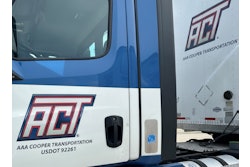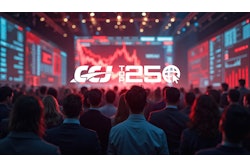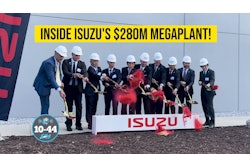I'd love to change the world
But I don't know what to do
So, I'll leave it up to you
The band Ten Years After nailed apathy in their 1971 song lyrics from I’d Love To Change The World.
Thankfully there are manufacturers, suppliers, fleets, shippers, drivers, technicians, back office people, front office people, non-government organizations (NGOs), government organizations and many more that actually are figuring out what to do in trucking by reducing emissions, improving efficiency, and reducing costs.
More than 10 years after accurately describes my post-trucking OEM life supporting the North American Council for Freight Efficiency. I left the OEM world in 2014 with the label “retired” but not really knowing what that meant for me. Within months, a friend I’d worked with suggested to NACFE that I might be a potential resource. I’ve since met quite a few recycled and repurposed "retired" OEM resources enjoying helping move the needle on improving the trucking industry.
If you are apathetic about trucking’s future and willing to leave it to others to figure it out, there are plenty of skilled, knowledgeable people and groups doing that. Just wait and the future always will come to you. You can complain about it as much as you like.
If, instead, you feel overwhelmed by a seemingly endless tidal wave of new and old arguments, are tired of seeing endless debates on technologies with no progress to show, then, I suggest you actively participate in networking events. Meet people and appreciate diverse opinions and experiences. Research. Join. Volunteer. Work towards consensus. Help move the needle.
Consider that you being right does not require others to be wrong.
Change happens in this industry because people are motivated by a common desire to improve, even where they disagree on how.
Don’t give into trucking apathy. As Doc Brown suggested in Back To The Future III, “The future is what you make it, so make it a good one.”
I’ve met some phenomenal organizations and their people in my time after OEM life and if you are looking to get involved any of these would be a good choice.
The North Central Texas Council of Governments (NCTCOG), has tirelessly been helping Texas cities move into the future, providing information on cleaner freight choices and holding demonstrations of all the alternatives. They also have been key participants in the Clean Cities Coalition with counterparts in nearly every state.
CALSTART is another good group. While their name includes CAL, this organization operates in many other states helping to clarify funding opportunities, present useful analysis and information on technologies, and helping others understand technology choices. Their Zero-Emission Technology Inventory (ZETI) tool highlights available alternative energy vehicles in different regions and they regularly track and report on where these vehicles are being registered and deployed in reports like Zeroing In On Zero-Emission Trucks.
Gladstein, Neandross & Associates (GNA) now part of the TRC group has helped the industry through hosting the tremendously valuable ACT EXPO annual conference while also facilitating countless information sharing panels and reports through ACT News.
Freight Transportation Research (FTR) provides regular visibility into what is really happening in the freight marketplace, providing hard data and analysis composited from a wide range of sources. Their annual FTR Transportation Conference is a wealth of critical information and perspectives.
ACT Research is a critical source of analysis and factual data on the trucking market. Their twice-yearly market vitals seminars provide excellent insights into trucking trends.
The American Trucking Associations’ (ATA) Technology Maintenance Council (TMC) has proven to be a rich source of information and inspiration. TMC is composed largely of industry volunteers from fleets, OEMs, suppliers, local, state and federal organizations, and various NGOs. Their Recommended Practices represent an extensive effort by many volunteers to help the industry understand the constantly evolving freight technology world. The TMC Annual Meeting provides broad perspectives on key topics by those living and breathing trucking and represents a tremendous environment for networking.
The Transport Project (TTP) has established itself as an excellent resource for details on gaseous fuel infrastructure and use in vehicles. They bring together a range of voices, mostly volunteers helping to accelerate adoption of alternatives like renewable natural gas and hydrogen.
SAE International has long been where volunteers help move the bar on clarifying technologies and their uses through standards and analysis. Their many conferences such as COMVEC and SAE World Congress are excellent networking opportunities for attendees.
The International Council on Clean Transportation (ICCT) regularly dives deep into technology information to help improve understanding of trucking technology, including relevant perspectives and insights from regions beyond the U.S. borders.
RMI is another global organization helping the transportation industry understand technology choices and advocating for continuous improvements towards the zero-emission future.
There are many more people at countless national laboratories in the U.S. and Canada that I’ve met in the last 11 years that have devoted their careers to improving trucking. Still more in many other non-profit and NGOs in North America and around the world.
This list is just a start of the many opportunities to learn and help trucking towards a more efficient future.












